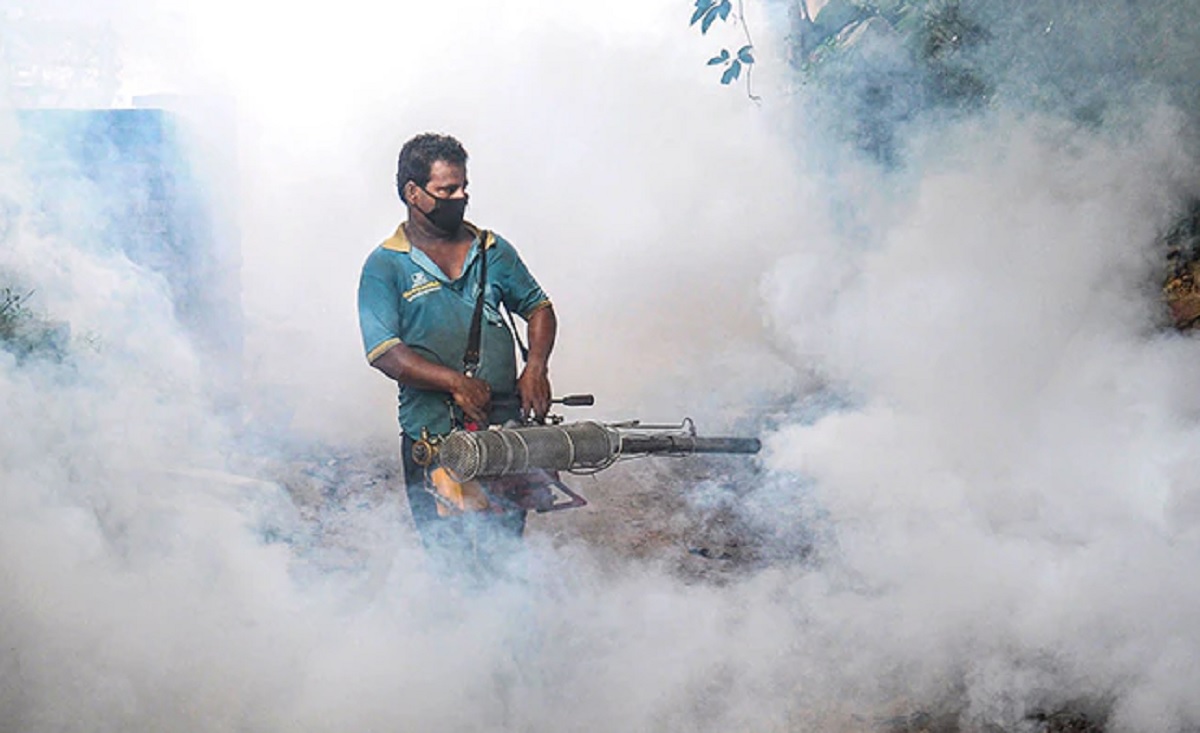
Siliguri dengue far from over : Aedes albopictus is likely to remain active in November also
Population of the Aedes albopictus is still active despite the departure of monsoon and they can mist at least till November
SNS, 27 October 2022: Siliguri's tryst with dengue does not seem to be over yet. Health department officials said that despite the drop in temperature, the number of dengue cases has remained static.
"We had found some active dengue cases in November last year, but the cases had been much less last year as compared to the situation so far this year." a health department official said. The department has laid focus on awareness among the people.
An insect biologist, Prof Dhiraj Saha, said the mosquito species, Aedes albopictus, had emerged as the primary vector carrying the dengue virus in the region, surpassing another species Aedes aegypti. Prof Saha said Aedes albopictus is likely to remain active in November also. -
"The population of the Aedes albopictus is still active despite the departure of monsoon and they can mist at least till November. This species can develop and survive in a wider range of environmental temperatures, ranging from 15 to 35 degrees Celsius. In low temperatures, it survives longer. Due to global warming, the advent of winter is delayed. The average temperature of Siliguri during October-November is 31/20 degrees Celsius and 29/15 degrees.
As such, Aedes albopictus breeds very normally, during this time. Proper anti vector activities are necessary to destroy the breeding sites and restrict the population buildup. A comprehensive Integrated Mosquito Management (IMM) programme has to be followed, based on current knowledge on biology, ecology and prevailing insecticide resistance status of the dengue vectors. The species will become inactive during the winter," said Prof Saha, who teaches insect biology at the North Bengal University.
Dengue is generally spread by the Aedes aegypti species of mosquito in urban areas, while the Acdes albopictus is usually found in rural areas and can exist in cold temperatures in winters in the region.
Entomological studies have, however, found a significant rise and high density of Aedes albopictus in the civic body areas for the past few years.
Health department officials have advised people to maintain cleanliness.
The number of dengue cases in the Siliguri Municipal Corporation has crossed the 3,500 mark, the highest in recent years in the civic body area.

0 Response to "Siliguri dengue far from over : Aedes albopictus is likely to remain active in November also"
Post a Comment
Disclaimer Note:
The views expressed in the articles published here are solely those of the author and do not necessarily reflect the official policy, position, or perspective of Kalimpong News or KalimNews. Kalimpong News and KalimNews disclaim all liability for the published or posted articles, news, and information and assume no responsibility for the accuracy or validity of the content.
Kalimpong News is a non-profit online news platform managed by KalimNews and operated under the Kalimpong Press Club.
Comment Policy:
We encourage respectful and constructive discussions. Please ensure decency while commenting and register with your email ID to participate.
Note: only a member of this blog may post a comment.